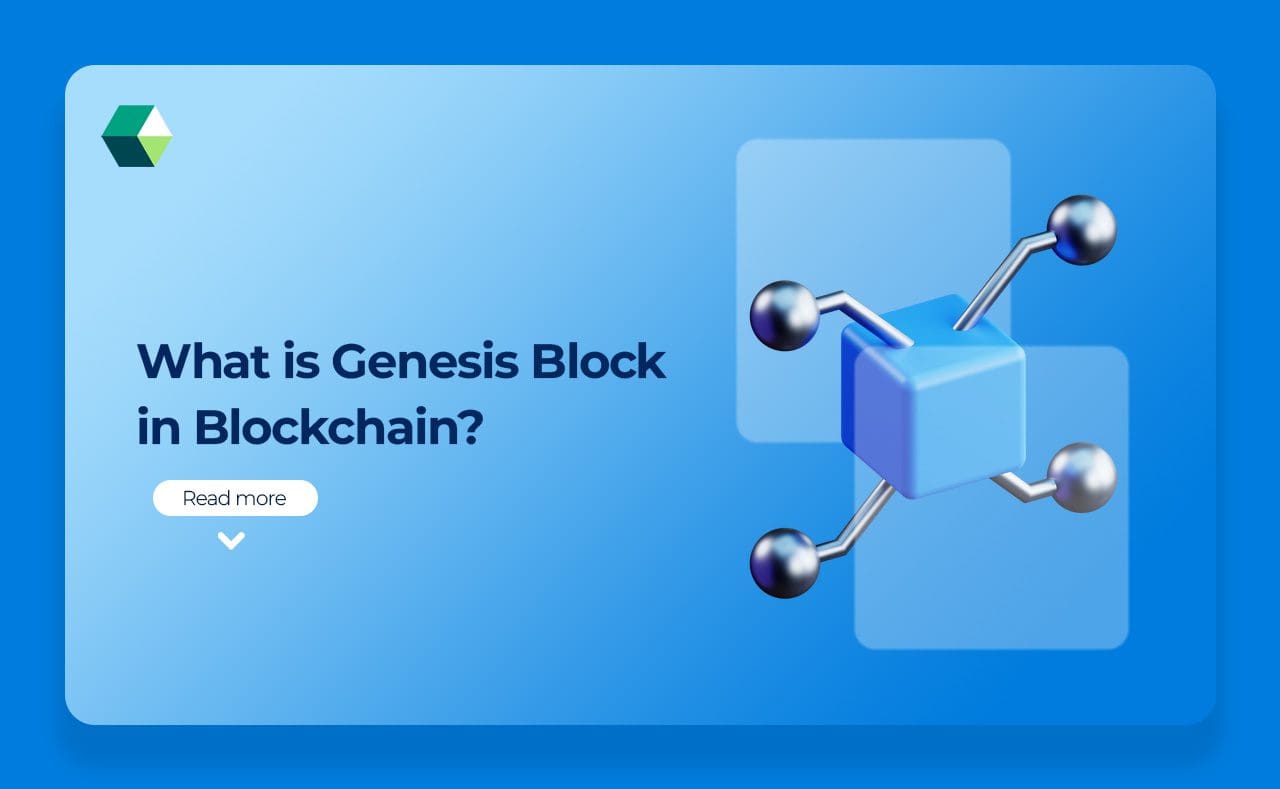Blockchain Technology has revolutionized the way we think about Digital Transactions, data security, and decentralized systems. At the heart of every blockchain lies the genesis block, a fundamental component that sets the foundation for the entire network.
What is a Block?
A Block in a Blockchain is a Digital Record containing a list of transactions. It is the basic unit of structure in a blockchain, housing all the data necessary to verify and validate transactions.
By chaining blocks in this manner, Blockchain Development ensures that all transactions are securely and transparently recorded. This structure not only enhances the security of the data by making it tamper-resistant but also provides a transparent and verifiable history of transactions. The integrity of the blockchain is maintained through this chain of blocks, making it a powerful tool for a wide range of applications beyond just Cryptocurrencies.
How is a Block Structured?
A blockchain block typically includes a header and a list of transactions. The header contains metadata such as the block number, timestamp, and a hash of the previous block. For the Genesis Block, the previous block’s hash is set to zero or left null.
What is a Genesis Block?
The Genesis Block, also known as Block 0, is the very first block of a blockchain. It lays the groundwork for all subsequent blocks and transactions. Think of it as the cornerstone of a Digital Ledger that initiates the entire blockchain network.
For example, in Bitcoin, the genesis block includes a cryptic message embedded in its Coinbase Transaction, which references a historical event and underscores the ideological motivations behind the creation of the blockchain.
What is the Historical Context of the Genesis Block?
The Genesis Block represents the inception of a blockchain. For instance, Bitcoin’s Genesis Block was mined by Satoshi Nakamoto on January 3, 2009, marking the beginning of the Bitcoin blockchain and, consequently, the era of cryptocurrencies.
What Early-Stage Issues Did the Genesis Block Face?
In the early stages, the Genesis Block faced several significant issues that set the tone for the blockchain’s development. One major challenge was ensuring Network Adoption and stability. When a new blockchain is launched, it starts with no transactions or users, making it difficult to attract participants and build a robust network. This initial phase is critical, as the Genesis Block must establish a solid foundation upon which subsequent blocks and transactions can be built.
Additionally, technical bugs and security vulnerabilities were common issues. The blockchain software had to be meticulously tested to ensure that the Genesis Block and subsequent blocks functioned correctly without introducing vulnerabilities.
Another challenge was related to the scalability and performance of the blockchain. The Genesis Block needed to set up the initial parameters for handling Future Transactions and scaling as the network grew. Ensuring that the blockchain could efficiently handle increasing amounts of data and transactions was a crucial consideration from the outset.
What Makes the Genesis Block Unique?
The Genesis Block is unique because it is hard-coded into the blockchain’s software and does not have a Predecessor. It also often includes special features or messages that reflect the blockchain’s purpose or the creator’s intent.
How the Genesis Block is Created?
-
Initialization
The Genesis Block is the first block in a blockchain. It is manually created by the Blockchain’s Developers or founders to establish the initial state of the blockchain.
-
Hardcoded Parameters
The block is hardcoded into the blockchain’s software with specific parameters, such as the initial timestamp, a unique Block Hash, and a predefined reward.
-
Unique Hash Calculation
The Genesis Block has a unique hash, derived from its content and parameters. This hash acts as the block’s fingerprint and is essential for maintaining the blockchain’s integrity.
-
Foundation for Subsequent Blocks
Once created, the Genesis Block serves as the foundation for all subsequent blocks in the blockchain. It’s referenced by the next block, establishing the chain’s continuity.
Why is the Genesis Block Significant for Network Security?
The Bitcoin Genesis Block is critical for network security because it establishes the initial conditions and parameters for the blockchain. Any attempt to alter the blockchain would require changing the **Bitcoin Genesis Block**, which is highly impractical due to the computational effort involved.
Since the Bitcoin Genesis Block is immutable and its hash is used as the base for calculating the hashes of all following blocks, any alteration to it would invalidate the entire chain. This immutability and the secure linking of blocks through cryptographic hashes underpin the blockchain’s security, ensuring that the network remains resistant to tampering and fraud.
Can the Genesis Block be Altered?
No, the Genesis Block cannot be altered. It is Hard-Coded into the blockchain software and serves as the foundation of the entire blockchain network. Altering the Genesis Block would require rewriting the entire blockchain from scratch, which is practically impossible due to the immense computational power required. This immutability ensures that the Genesis Block remains a secure and unchangeable reference point for all subsequent blocks in the chain.
How Does the Genesis Block Differ Across Blockchains?
The Genesis Block differs across blockchains primarily in its content and purpose. Each blockchain has its own Genesis Block with unique attributes:
-
Bitcoin
Bitcoin’s Genesis Block, created by Satoshi Nakamoto, includes a message referencing the financial crisis of 2008: “The Times 03/Jan/2009 Chancellor on brink of second bailout for banks.” This message highlights Bitcoin’s goal to provide an alternative to traditional banking systems.
-
Ethereum
Ethereum’s Genesis Block initiated the Ethereum blockchain, which supports smart contracts and decentralized applications. The Genesis Block here set the stage for these features and marked the start of Ethereum’s network.
-
Litecoin
Litecoin’s Genesis Block is similar in structure but designed to offer faster transaction times and a different hashing algorithm compared to Bitcoin.
Each blockchain’s Genesis Block reflects its creator’s vision and technical goals, setting initial parameters and rules that influence the blockchain’s evolution.
What Future Innovations Could Impact Genesis Blocks?
Future innovations in blockchain technology could significantly impact Genesis Blocks. Advances in consensus mechanisms, such as new Proof of Stake (PoS) models or hybrid algorithms, may enhance the efficiency and security of Genesis Blocks. For instance, integrating Decentralized Finance (DeFi) protocols or Decentralized Applications (dApps) directly into the Genesis Block could allow for more sophisticated initial functionalities and interactions.
Additionally, developments in cryptographic techniques and security protocols are expected to bolster the protection of Genesis Blocks against attacks, ensuring greater immutability. Scalability solutions, such as sharding or Layer 2 Technologies, could also affect how Genesis Blocks are structured and their performance, making them more adaptable to evolving blockchain networks.
Furthermore, incorporating features to address regulatory compliance from the start could help new blockchains meet legal standards and integrate seamlessly with broader ecosystems. These innovations will shape the future role and capabilities of Genesis Blocks in the blockchain space.






